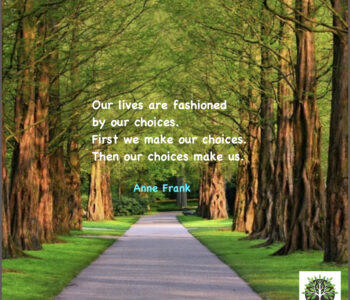 Uncategorized
Uncategorized
You make choices, and your choices make you: a…
For many of us, by now, New Years resolutions have become a distant memory. Research says that of the 41% of Americans that set resolutions at the beginning of the year only 9% are successful at keeping them. Perhaps the fact that we set our resolutions, often misty eyed, in the afterglow of a holiday, festivities, rest and fun could be a factor? However, the New Year promises a new beginning, a time to reset and inspire ourselves into what we believe our potential is. In my view, even a small step towards a positive change is an improvement. So, are you in the large majority whose goals are now fading slowly? This is not a disaster. I have recently been helping MBA student clients review their goals for their year ahead, and also experimenting with my own.Here are some strategies that we’ve been playing with.
1. Setting a soul-based goal rather than an ego based one – what this means is looking deeply at the “why” of the goal. As an example, you can set a goal like : “I want to lose 10kgs by the end of the year”. Let’s look at these words. They feel hard. They may have the implication of perhaps diet and deprivation? This is an example of what author Marci Shimhoff calls the “ego-based goal” which we can transform this into a “soul-based goal”. One that feels lighter, and has more “ease and openness” associated with it. Something like “ I would like to be my best physically (maybe emotionally and spiritually” or “I would like to have energy to do the things I love and be with my loved ones” These are just some of the ways that you can, using language, create a deep soul-felt intention about something that is important to you.
2. Asking “who do I want to become?” rather than what I want to do? An example of this is looking at what some of our goals would result in. Perhaps you have a goal of reading one book a week. How would that change you? Perhaps it is around becoming well read/ an expert on a certain subject? Perhaps you would like to be someone that uses your time deliberately and intentionally? What would your goals help you to transform towards?
3. Getting clearer and clearer on what these goals actually mean. Goals that are vague are difficult to achieve, so visualise your goal, the end result with exquisite precision. Get into the detail, the picture as precisely as you can. What would you feel like. What do you see, smell, taste and feel if you achieve this goal?
4. Having “micro-goals” linked to the big picture. Following on from the above, what do you need to do daily, weekly, monthly to achieve this goal. Also called chunking, in setting the micro-goals, the big goal becomes more achievable. Just one step at a time, every day, is where the magic lies
5. Getting back on the horse, when life bucks you off. Yes, this happens and I can certainly vouch for that too. How can we see this not as failure, and simply a detour in the path? Remember that in building new neural pathways, the old ones are still there, and can be activated at the drop of a hat especially when life happens.
How can you use the mindset that life is iterative, just the way, a computer program needs several tweaks and need redesigning to change your perspective. Use the fall of the proverbial horse to inquire into what happened. Perhaps you had a stressful day, where you simply could not fit in the 30min walk, or your child was not well. The trick is to be gentle with yourself, and not listen to the tyrannical voice many of us have inside our heads. Literally say to yourself “It’s ok, tomorrow is another day”. Write in your journal and unpack the noise and stories in your mind, and create space for trying again. As Winston Churchill said, “Success is not final, failure is not fatal — it is the courage to continue that counts.”
6.Focus on the process not the outcome.James Clear, author of Atomic Habits says that “Goals can provide direction and even push you forward in the short-term, but eventually a well-designed system will always win. Having a system is what matters. Committing to the process is what makes the difference” See your goals as a journey to becoming more present and intentional about what truly matters to you in life. Stay with the process and invite ease and an attitude of learning, iterating and learning some more.
So as you haul out and dust off some of your goals from January:
First, invite ease not criticism.
Next check if this is really what you want to become.
Ask “why?”
Then, rework and reword them if your need to.
Lastly, take one tiny step today. It could simply be making a call, putting on your walking shoes, or not reaching for the candy bar.
Your goals are not more complex, than the next smallest choice you have to make, because in the end as Anne Frank said “Our lives are fashioned by our choices. You make choices, and your choices make you”